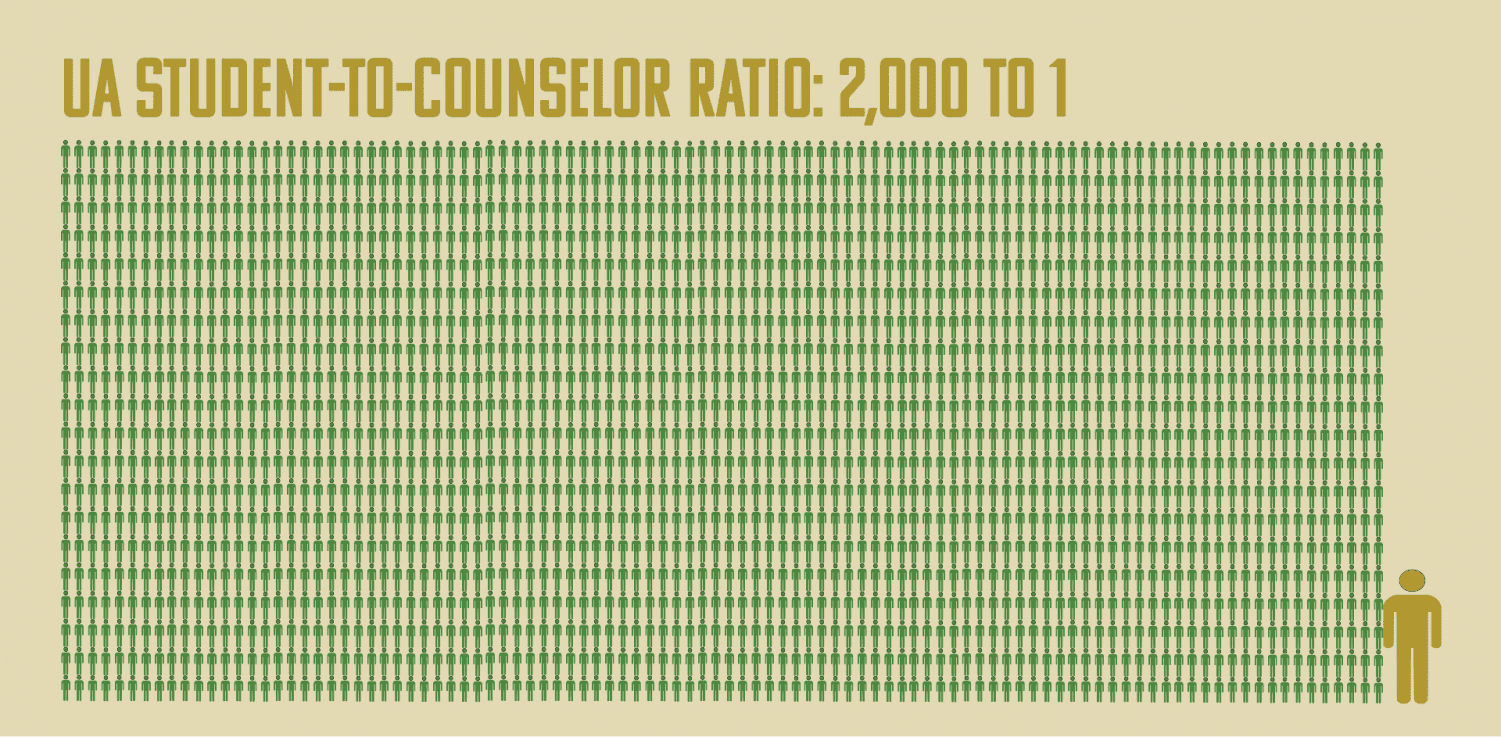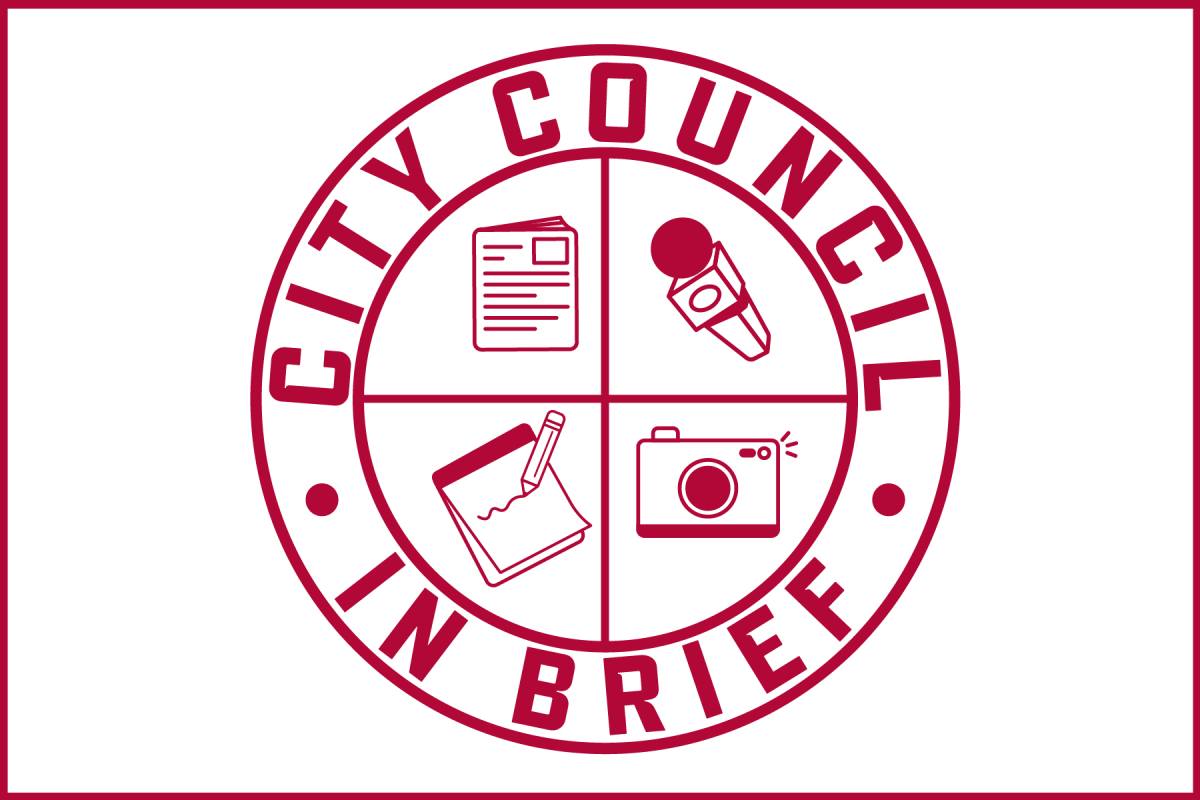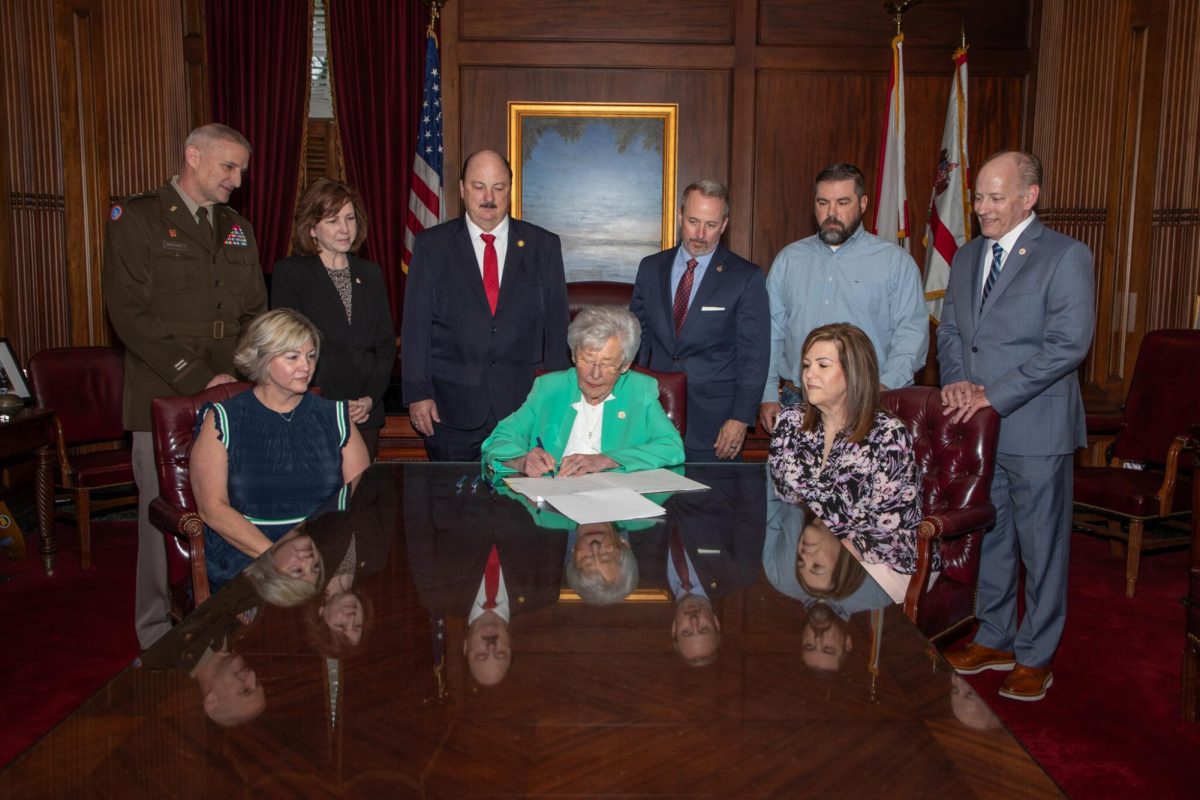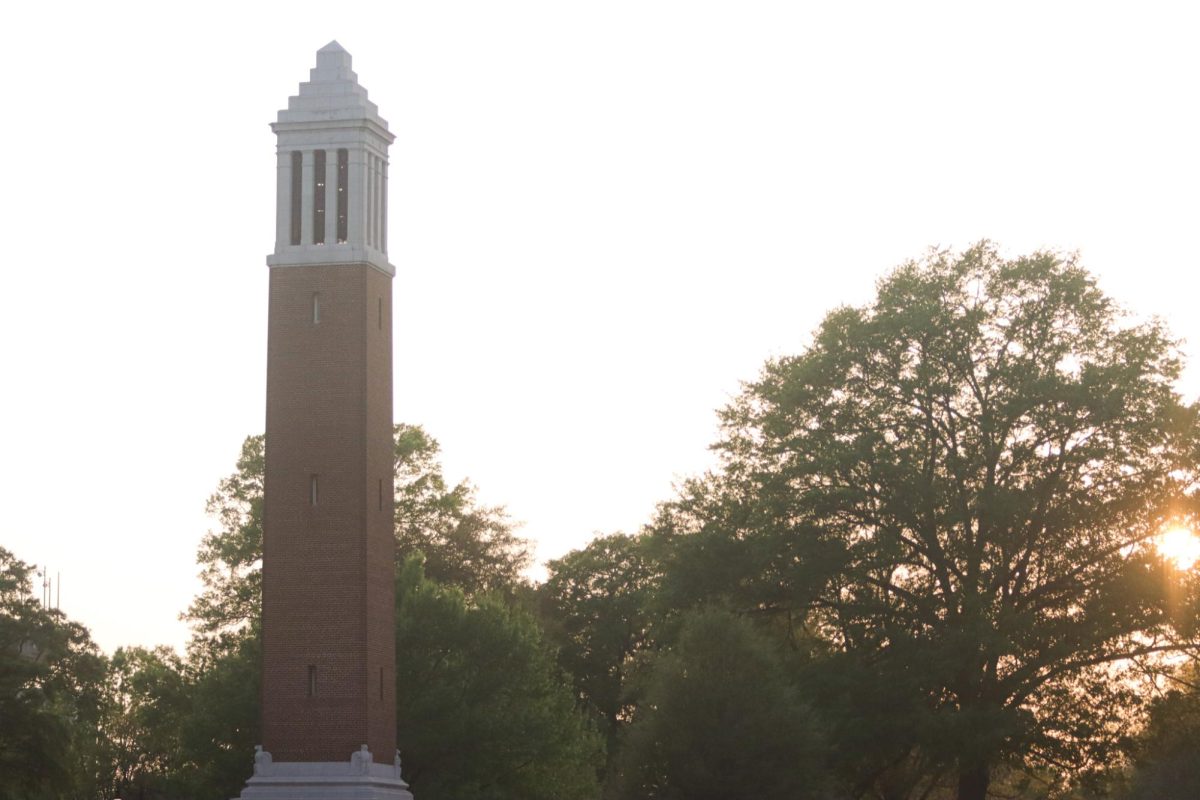Editor’s Note: This story was updated on Oct. 21, 2020 to add new information retrieved from an open records request.
The University of Alabama and Louisiana State University (LSU) are the only universities in the Southeastern Conference that charge full-time students for mental health counseling. The other 12 SEC institutions offer individual counseling sessions at no extra cost to students enrolled in a minimum number of credit hours.
Session Fees
At the UA Counseling Center, students receive a free screening appointment, but a $15 fee is incurred for each subsequent session. Students are limited to 15 individual counseling sessions per academic year.
Students at LSU must pay a $20 fee for each counseling session.
Greg Vander Wal, Executive Director of the Counseling Center, sees the fee for individual counseling as a mixed bag.
“There’s always a chance that [the fee] might be a barrier to people seeking services,” Vander Wal said.
But he thinks it also encourages students to participate more actively in their counseling experience.
“Having that little bit of investment, that $15 per session, people actually do engage the service more intentionally,” Vander Wal said. “I do think … asking students to invest on some level into this is a good thing.”
He added that at many universities, the cost of counseling services is reflected in a per-semester fee paid by all full-time students.
John Pace, a junior majoring in history and economics, started individual counseling at the Counseling Center in early September. He said he “probably would have chosen to do [counseling] sooner if it was free” but noted that the services available at the Counseling Center are still significantly less expensive than those offered by private providers.
According to GoodTherapy, an online directory of mental health care providers, therapy costs in the United States typically vary between $100 and $200 per session.
“We never want that fee to be a barrier,” Vander Wal said. “If that does appear to be a hardship for that person, we are able to implement fee waivers and work with that student to make sure that they have access to care.”
He highlighted the fact that students’ first counseling session is free. “We get a lot of people who come in and [tell us], ‘Yeah, I wanted to do [counseling], but I don’t know if I can afford it going forward,’ and then we’re able to … work with them and make sure that they have their needs met.”
Dana Crisci, a senior majoring in fashion merchandising, has attended individual counseling at the Counseling Center since the fall of her freshman year and said she has struggled to pay the $15 session fee.
“Earlier in college … I went to sessions once every two weeks to try to offset [the cost] but then began to prioritize [counseling] more and go weekly,” said Crisci.
Crisci said she told her counselor about her difficulty paying for counseling, but her counselor “never mentioned the option of having the fee waived.”
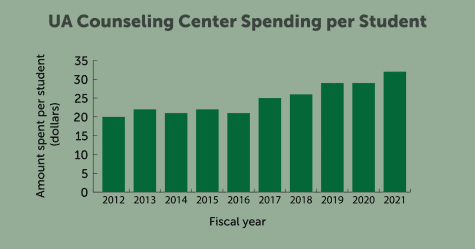
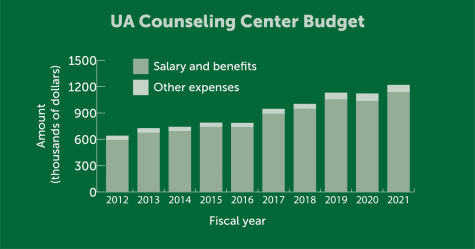
The Budget
At $1.5 billion, The University of Alabama’s endowment is the fifth largest in the SEC. On Oct. 19, the University responded to an open records request for information about the Counseling Center’s budget, showing that the Counseling Center’s annual outlay has increased gradually from $642,000 in 2011 to $1.22 million in 2020.
A 2019 survey conducted by the Association for University and College Counseling Center Directors (AUCCCD) examined salary and benefits budgets among counseling centers at 17 colleges with enrollments between 35,001 and 45,000. The median salary and benefits budget among this group was $2.41 million, more than twice the UA Counseling Center’s $1.06 million salary and benefits budget for that fiscal year.
When asked if he believes the Counseling Center is underfunded, Vander Wal equivocated.
“We could always use more bodies in the building,” he said. “I think if we had more bodies, we could see more students.”
Right now, he said, the center employs 19 counselors to serve almost 38,000 students, or one counselor for every 2,000 students. Vander Wal said an “ideal” student-counselor ratio would fall between 1,000 and 1,500 to one.
Students seeking individual counseling from the Counseling Center routinely face wait times of two weeks or longer. However, Vander Wal was careful to point out that there are more immediate options for students in crisis, including 30-minute phone consultation appointments that students can schedule for the same day. Additionally, for “any student who’s experiencing an emergency or a crisis, they can be seen [the] same day,” Vander Wal said.
Kalei, a junior at the University who asked to be identified by her first name only, said the fee did not play a significant role in her decision to attend counseling. Like Pace, she pointed out that the Counseling Center’s services are cheaper than those offered by private therapists. Her “only complaint” is the limit of 15 individual counseling sessions per year. For Kalei, “that’s really the only negative aspect of the whole program.”
Individual counseling is the only paid service that the Counseling Center offers, Vander Wal said. Other services, such as group counseling and self-help workshops, are provided to students free of charge.
Vander Wal encouraged students to take advantage of the resources available to them at the Counseling Center. He stressed that students “have a lot of different options,” including online self-help material and support groups.
“Do it early,” he said. “You don’t necessarily have to wait until it feels like a crisis to reach out and engage.”



